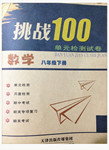题目内容
13.Like the native Chinese,some foreigners have started to join their Chinese friends (61)in sending or grabbing virtual red packets during the Spring Festival and other special (62)occasions(occasion).(63)Attracted(attract) by the unique way of interacting with people as well as the culture that gave birth to the phenomenon,many foreigners say competing with friends to grab red packets in (64)a WeChat group can be a lot of fun.
Mattias Klement,27,a Swede (65)who has been living in China for years,said more foreigners have started to take part in this (66)activity( active) because of the popularity of WeChat wallet.
"I think it is (67)mainly (main) because more and more places now allow paying with WeChat.It's also fun to just involve (68)yourself(you) in the culture of it,"said Klement.Two years ago,when some friends (69)sent(send) him 5.20 or 8.88 Yuan red packets,he had no clue about the hidden meanings.Now,he is not only quite familiar with them but also has been used to sending some.
"It's nice to be able to say‘I love you'with 5.20 Yuan,I guess,"he said,laughing."I also remember
(70)trying(try) to tick some of my friends off by paying back 99.99 instead of 100 just for fun."
分析 本文介绍了中国红包的意义,以及现在网络红包的故事.
解答 61.in 考查固定搭配.join sb in doing sth 是英语的固定搭配"加入到某人干某事的行列中".
62.occasions 考查名词.根据句意:在春节期间和其他的特殊的场合.这里是指春节以外的场合,应该用复数形式.
63.Attracted 考查非谓语.主句的主语many foreigners 与attract之间是被动关系,所以用过去分词在句中做状语.
64.a考查冠词.句意:许多外国人说跟朋友抢红包在微信群中可以得到很多乐趣.这里的微信群是泛指,所以用a.
65.who 考查定语从句.先行词是Mattias Klement这个人,在从句中做主语,所以用关系代词who.
66.activity 考查副词.此处是用副词修饰动词短语take part in."积极参加".
67.mainly 考查副词.此处用副词修饰原因"主要是因为…".
68.yourself 考查代词.Involve onself in 是固定短语"卷入…"
69.sent 考查时态.Two years ago 两年前,只能用过去时,
70.trying 考查固定用法.Remember doing 是记着做了某事.句意:我还记得
为了给我的朋友们留下99.99英镑而不是100英镑,我想把他们打个勾,只是为了好玩.
点评 语法填空是通过语篇在语境中考查语法知识的运用能力,在解题前应快速浏览短文掌握大意,在读懂短文的基础上,结合短文提供的特定的语言环境去逐句分析.要解决好语法填空,离不开坚实的语法知识,有了坚实的语法知识才能对语言进行正确的分析和判断,从而答对题目.

练习册系列答案
 挑战100单元检测试卷系列答案
挑战100单元检测试卷系列答案
相关题目
3.The school__________ I studied only two years_________ three kilometers away.( )
| A. | which; is | B. | where; were | C. | where; was | D. | which; was |
1.______parents show great concern for their children's studies is quite common in big cities. ( )
| A. | What | B. | Whom | C. | Whether | D. | That |